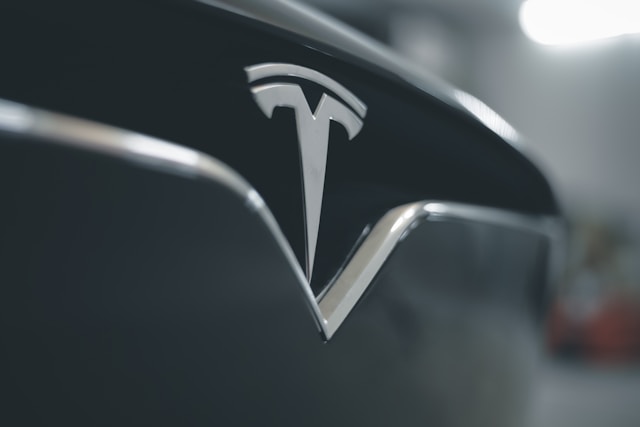Visa Stock Analysis: Is Visa a Strong Opportunity Ahead of Q4 Earnings?
$325.48
28 Jan 2026, 19:25

Unsplash.com

India is positioning itself as a global manufacturing powerhouse, successfully attracting major corporations like Apple to establish and expand production within its borders. Now, the South Asian nation has set its sights on Tesla, encouraging the electric vehicle (EV) giant to set up operations in the country.
After years of reluctance, Tesla is showing renewed interest in the Indian market, particularly as the government introduces an updated EV tariff policy aimed at luring global automakers. Reports indicate that Tesla is actively hiring and scouting locations for showrooms in India. This development follows a recent meeting between Indian Prime Minister Narendra Modi and Tesla CEO Elon Musk.
Industry experts believe Tesla’s arrival in India is imminent. “One thing is for sure, Tesla is coming to India based on the recent news, and the government is also very serious about it,” said Puneet Gupta, Director for the Indian automotive market at S&P Global Mobility, in an interview with CNBC.
India's newly introduced EV policy, set to take effect before March-end, reduces import duties on electric vehicles from approximately 70% to 15%. However, this reduction applies only to high-end EVs priced above $35,000 and requires a minimum investment of $500 million, alongside long-term plans for local manufacturing.
“The EV policy is a strategic move to align with Tesla’s business model and demonstrates India’s commitment to supporting EV production,” Ammar Master, South Asia Director of Automotive at GlobalData, told CNBC.
Despite these incentives, Tesla faces multiple hurdles in penetrating India’s booming automobile market, the third-largest in the world. Analysts highlight concerns regarding pricing and investment requirements that could impact Tesla’s decision-making.
A research note from Bank of America suggests that if Tesla joins this investment scheme, its minimum vehicle price would be around $40,000—significantly higher than most vehicles in India. This price point limits Tesla’s market potential, as Indian consumers typically prefer more affordable cars.
Additionally, under the EV policy, Tesla must establish a manufacturing facility within three years and achieve 50% domestic value addition within five years. Analysts believe Tesla may find it premature to commit to such a timeline unless it can lower vehicle prices below $30,000 to appeal to a mass-market audience.
For now, experts predict Tesla will adopt a cautious approach, initially exporting vehicles to India to gauge market demand before committing to local manufacturing.
Puneet Gupta of S&P Global Mobility believes Tesla may push for further revisions in India’s EV tariff policy to make it easier to ship vehicles to the country before committing substantial investments.
Reports from Indian media also suggest that the government is considering further adjustments to its EV policy to attract Tesla and other global automakers.
While Tesla is exploring expansion opportunities, geopolitical factors may also influence its India strategy. In a recent interview with Tesla CEO Elon Musk, former U.S. President Donald Trump stated that Tesla manufacturing in India would be “very unfair.” This political stance could impact Tesla’s investment decisions, especially amid ongoing production expansions in Germany and Texas.
Moreover, Tesla faces rising competition from Chinese EV manufacturers like BYD, making market diversification a crucial strategy. Although India’s EV market is currently in its early stages, securing a foothold could prove beneficial for Tesla in the long run.
Tesla’s potential entry into India marks a significant shift in the country’s EV landscape. While challenges remain in terms of pricing, policy commitments, and geopolitical influences, India’s efforts to attract Tesla reflect its ambition to become a global EV manufacturing hub. Whether Tesla proceeds with direct investment or takes a gradual approach through exports, its presence in India could reshape the country’s electric vehicle market in the years to come.
(sources: CNBC.com, ChatGPT)